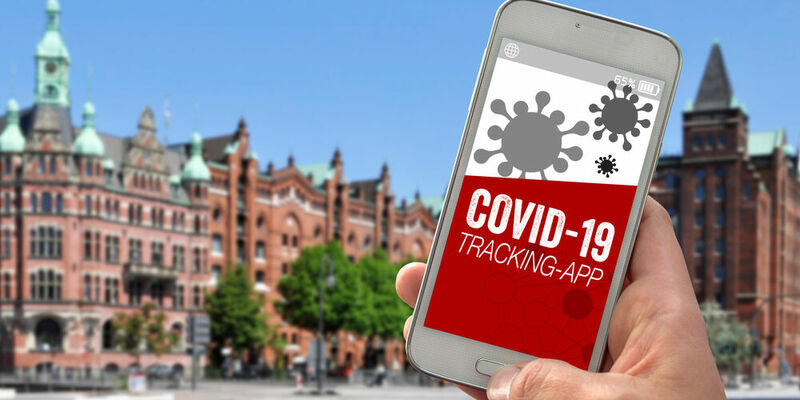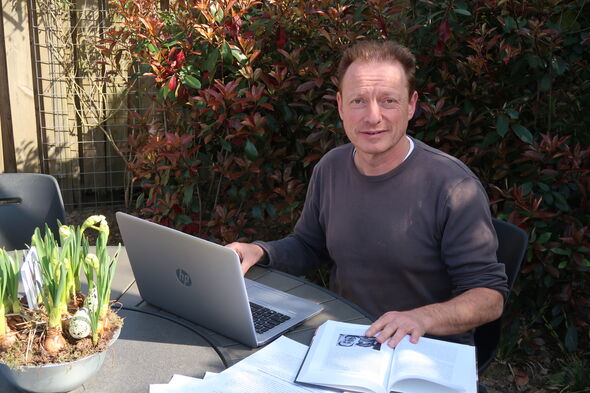
- Corona , Research
- 16/04/2020
“Experimenting with an app in society will have disastrous consequences”
Lambèr Royakkers, associate professor in the ethics of technology, is one of the three TU/e scientists who signed a letter warning about a hasty implementation of a tracing app to help combat the coronavirus. “Experimenting with an app in society will have disastrous, incalculable consequences that might be irreversible.”
When reading the seven-page letter (only available in Dutch) that was sent to Prime Minister Mark Rutte and ministers Hugo de Jonge (Health) and Ferd Grapperhaus (Justice and Security) on Monday 13 April, one might conclude that developing a reliable app to help lift the ‘intelligent lockdown’ is an all but impossible task. The letter extensively sums up the possible dangers of a tracing app and outlines the basic requirements of such an app.
Lambèr Royakkers is one of the three TU/e scientists who signed the letter. The other two are Carlo van de Weijer, managing director of the Eindhoven Artificial Intelligence Systems Institute, and Veronika Cheplygina, assistant professor at the department of Biomedical Engineering. The letter has a total of sixty signatories. Royakkers’ name was added because the authors were looking for allies within their networks. He fully agrees with the contents.
“It seems as if the government is running around like a headless chicken trying to have an app developed, without seriously thinking through the consequences first. There’s nothing we know with any certainty about this yet. How effective is such an app? How reliable does it have to be and how do you guarantee that reliability? Can anonymity be ensured? And what about the other privacy issues? How do you make sure that the app won’t lead to discrimination? Think of people working in the healthcare sector, for example. Will they no longer be allowed to go to the supermarket once they’re registered as persons who were in contact with corona patients recently?”
Multidisciplinary group
Another question that needs answering, Royakkers says, is who should be involved in the development of such an app. “That should be a very interdisciplinary group: people from the healthcare sector, app developers, legal experts, ethicists, behavioral scientists, and last but not least the users themselves. Because no one asks the group of users for whom this app is intended for their opinion.”
Royakkers is also worried about the irreversibility of the effects of a tracing app. “Experimenting with such an app in society will have disastrous consequences. Strict precautionary measures need to be imposed. I teach my students to always adopt a value-conscious design approach. That means with a clear vision on values such as privacy, effectiveness and autonomy when introducing a technology, like this app."
"The government must not think of this as a kind of pilot where you can correct the mistakes at a later stage. Because by that time it won’t be possible anymore. Then the issue will be what to do with all kinds of privacy sensitive information that has been shared already. Where will it be stored? Who will have access to it? I expect that a major social media company will be brought in to help with a wide-ranging project like this one. For how long will the information be stored, and what guarantees do we have that this information will actually be destroyed afterwards? Whether such an app should be used on a voluntary basis or not isn’t even a relevant question at that point. It’s only after it has become clear what you can expect from such an app and what the situation is with respect to privacy that people will want to do something with it.”
European level
Royakkers seriously doubts whether it’s possible to develop an app at short notice that meets all these requirements. “I believe this project should be coordinated at a European level, instead of having each country develop something on its own initiative. And be sure also to look at the apps currently used in other countries, and learn from the experiences they gained from that.”
He himself sees possibilities for apps that contribute to more safety and infection prevention on a smaller scale. “For public transportation, for example. If you can get information about the occupancy in a train compartment via an app from national rail company NS, you can base you travel behavior on that. That could also be possible for visiting cinemas or theatres, and possibly for restaurants.”

Discussion